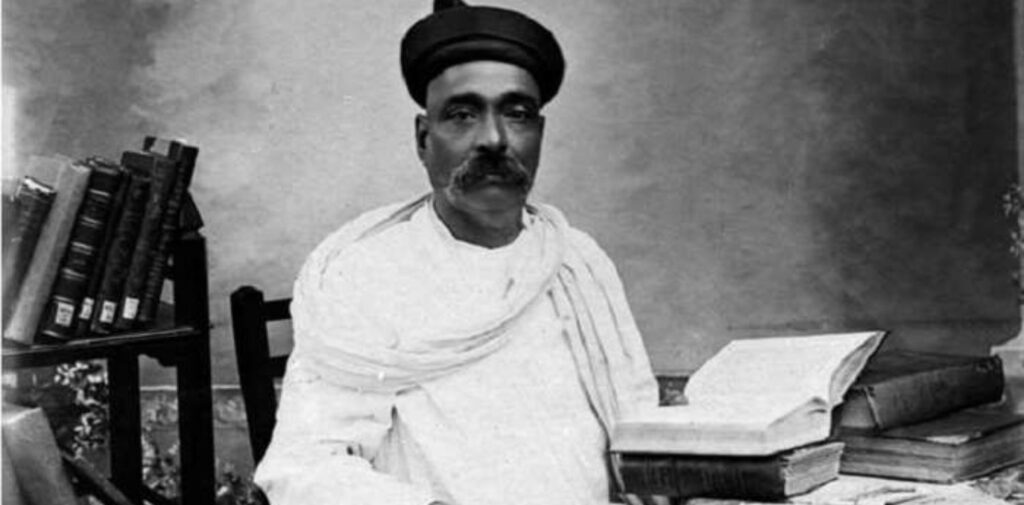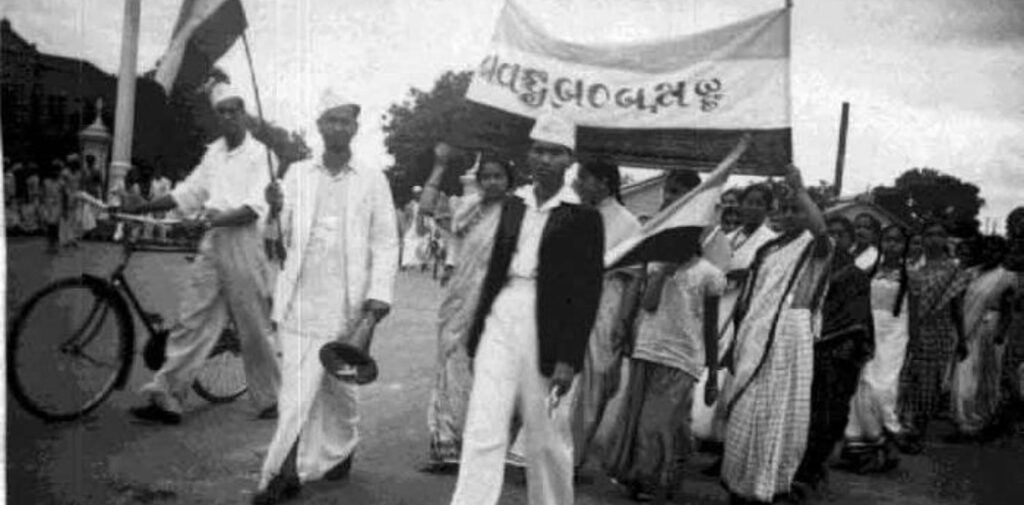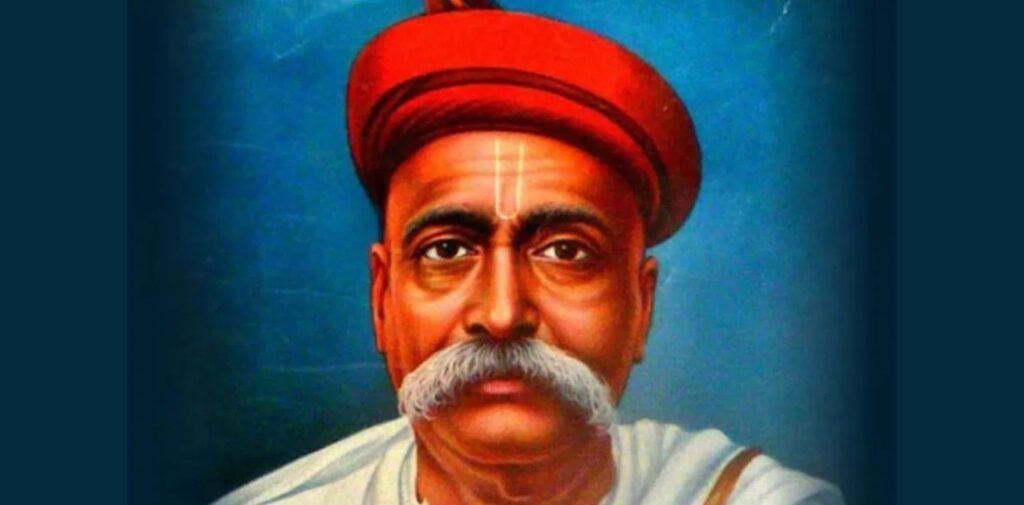Introduction: Who Was Bal Gangadhar Tilak?
Bal Gangadhar Tilak, often called the “Father of Indian Unrest,” was one of the most important leaders in India’s struggle for independence. He was a freedom fighter, a great thinker, and a strong voice against British rule in India. His ideas and actions helped shape the future of the Indian independence movement, inspiring many others to join the fight for freedom.
Early Life of Bal Gangadhar Tilak
Bal Gangadhar Tilak was born on July 23, 1856, in the town of Ratnagiri, in present-day Maharashtra. He came from a middle-class family. His father, Gangadhar Tilak, was a school teacher, and his mother, Parvati Bai, was a religious woman who played a strong role in his early life.
Tilak was very good at his studies. He went to school in Pune, where he became very interested in subjects like mathematics, history, and philosophy. He later went on to study law and earned a degree in law from the University of Bombay (now Mumbai). But despite his success in education, he was more passionate about the problems his country was facing under British rule. He wanted to make a difference.

Bal Gangadhar Tilak’s Early Involvement in the Independence Movement
Tilak started his journey in the independence movement when he was still a student. He joined the Deccan Education Society and helped start the Maratha newspaper in 1881. Through this newspaper, Tilak spread his ideas about the need for India to become free. He believed that only if the Indians stood up against British rule, could they become truly free.
One of his famous quotes is: “Swaraj is my birthright, and I shall have it!” This means that Tilak believed that the right to self-rule (or Swaraj) was something every Indian was born with, and no one could take that right away. This idea became very popular among the people and made Tilak a leader to follow.
Tilak’s Ideas and Beliefs
Tilak was different from many other leaders in the Indian National Congress (INC) at that time. While some leaders wanted to fight the British peacefully and slowly, Tilak believed that India needed to fight harder and faster to get independence. He was not afraid to speak out against the British government. He strongly believed that:
- Indians should have self-rule: Tilak wanted the British to leave India and give the people of India the freedom to govern themselves.
- Indians should take pride in their culture: He wanted Indians to embrace their history, culture, and religion. He believed that people should not feel ashamed of their traditions and values.
- Education was important: He was a big supporter of education and believed that the youth of India should learn about their own culture and history.
Tilak’s beliefs made him very popular among many Indians, but they also made him a target for the British rulers. The British saw him as a dangerous man who could inspire people to rebel.

The Role of Bal Gangadhar Tilak in the Swadeshi Movement
In 1905, the British decided to partition Bengal, dividing it into two parts, one for Hindus and the other for Muslims. The British did this to weaken the unity of the people in Bengal. This move angered many Indians, and it led to the Swadeshi Movement.
The Swadeshi Movement was all about boycotting British goods and using Indian-made goods instead. Bal Gangadhar Tilak strongly supported this movement. He encouraged people to stop using foreign products and instead buy goods that were made in India. He also supported the Swadeshi schools and other Indian-run institutions.
Tilak and His Role in the Press
One of the most powerful tools Bal Gangadhar Tilak used to spread his message was the press. He ran two popular newspapers: Kesari and Maharatta. These newspapers helped spread his ideas about self-rule and the need for unity among Indians. Through these newspapers, Tilak was able to reach a large number of people and encourage them to take action.
However, the British government did not like what Tilak was doing. They believed he was causing trouble with his words and his ideas. As a result, they arrested him multiple times for the things he wrote in his newspapers.
Tilak’s Time in Jail
In 1908, Bal Gangadhar Tilak was arrested for his role in spreading the ideas of the Swadeshi Movement. He was sentenced to six years in prison and was sent to the Andaman Islands, a remote place where many political prisoners were sent by the British. Even in jail, Tilak did not stop fighting for his country. He continued to inspire many people with his ideas about independence.
During his time in jail, Tilak wrote a book called “The Arctic Home in the Vedas”. In this book, he explored the history and culture of ancient India. He believed that India’s history was rich and should be celebrated, not forgotten.
The Revival of the Indian Independence Movement
After his release from prison in 1914, Tilak returned to India and continued his fight for independence. His time in prison had made him even more popular, and people saw him as a true leader of the freedom struggle.
Tilak began working with other leaders like Lala Lajpat Rai and Bipin Chandra Pal to form a stronger movement for self-rule. He also started focusing on uniting Hindus and Muslims, believing that the fight for independence should not be about religion but about freeing India from British rule.
In 1916, Tilak played a major role in the Lucknow Pact, an agreement between the Indian National Congress and the All India Muslim League. This agreement brought Hindus and Muslims together, marking a significant moment in India’s fight for independence.

Tilak’s Legacy: What He Left Behind
Bal Gangadhar Tilak’s impact on India’s independence movement was enormous. He believed in action and believed that if India was to be free, the people had to stand up and fight. His slogan, “Swaraj is my birthright, and I shall have it!”, became a rallying cry for millions of Indians who wanted to throw off British rule.
Although Tilak did not live to see India’s independence, his work laid the foundation for future leaders and movements. His call for self-rule, his focus on education, and his ability to unite people across religious and cultural boundaries made him a key figure in India’s journey to freedom.
Conclusion: The Importance of Bal Gangadhar Tilak in Indian History
Bal Gangadhar Tilak was one of the earliest leaders to openly challenge British rule in India. He was a revolutionary who used his knowledge, his writing, and his speeches to inspire a nation to fight for its freedom. His determination, courage, and love for his country made him a hero for millions of Indians.
Even though Tilak’s methods were sometimes seen as extreme, his ideas about self-rule, unity, and independence inspired many later leaders, including Mahatma Gandhi. Today, Bal Gangadhar Tilak is remembered as one of the most important freedom fighters in Indian history. His legacy continues to inspire us to fight for justice, equality, and freedom.




